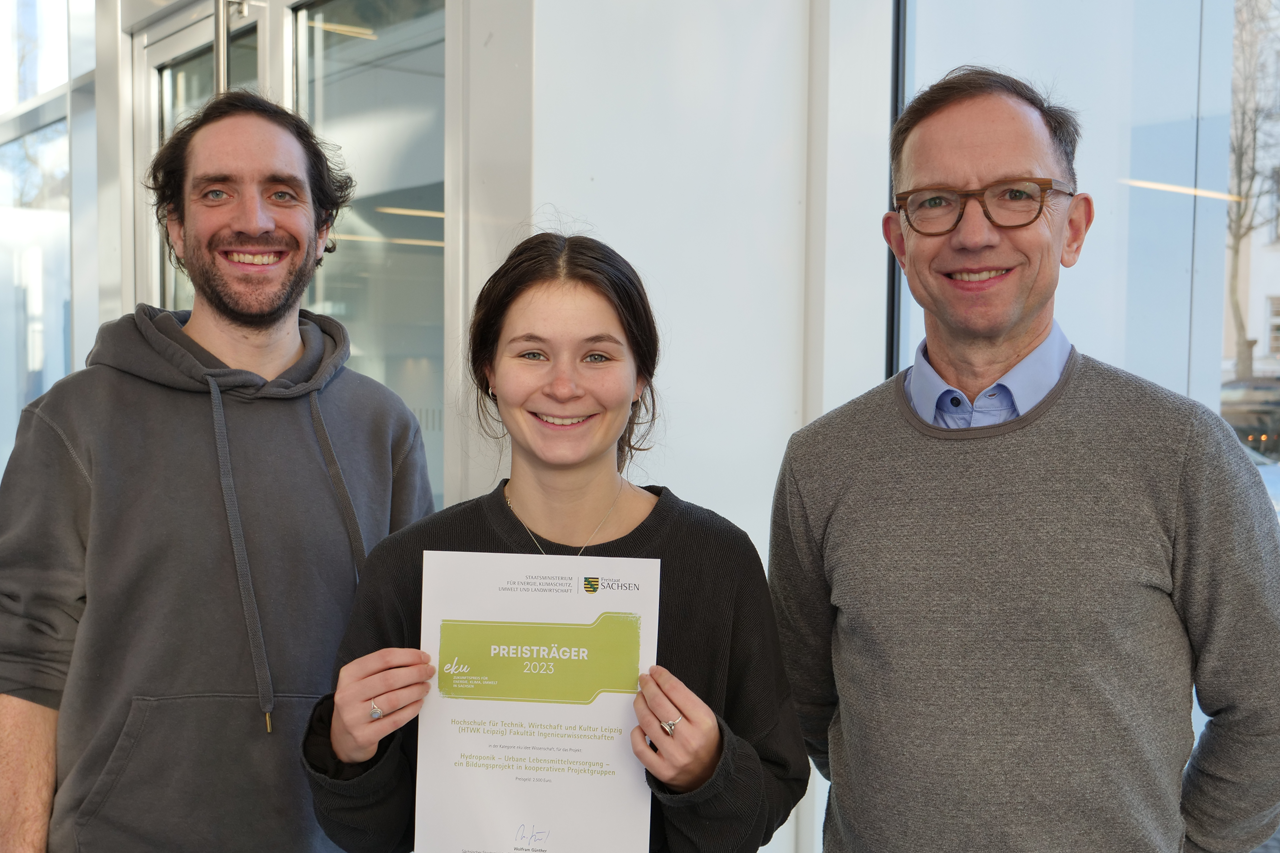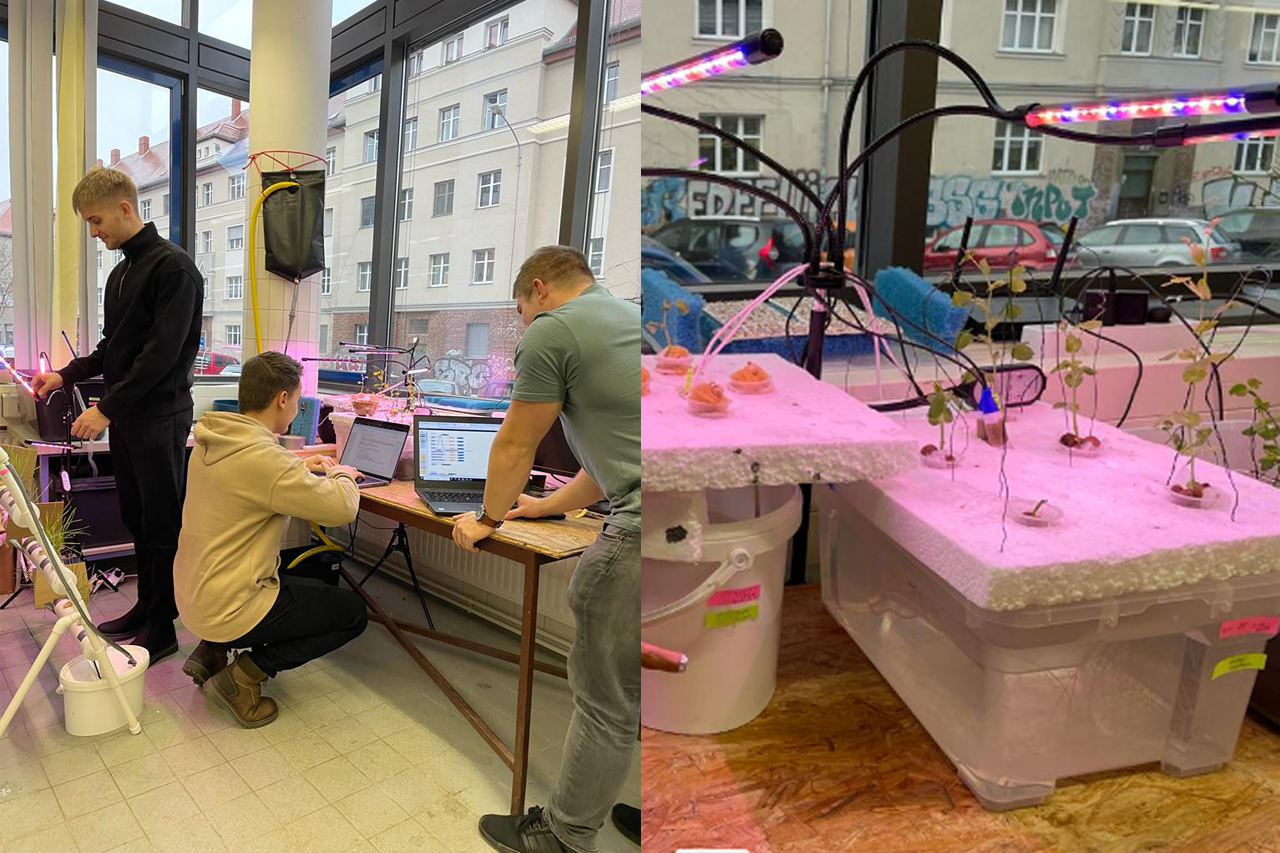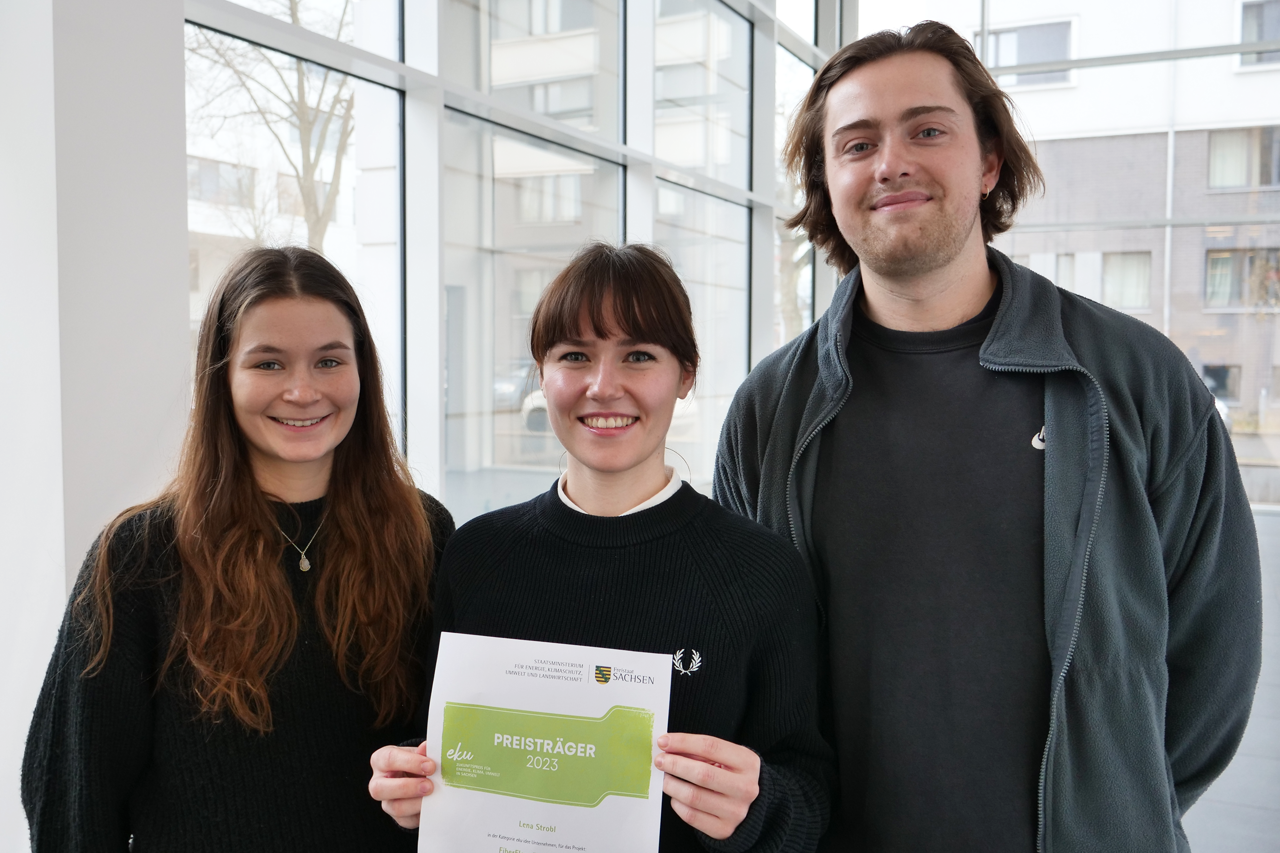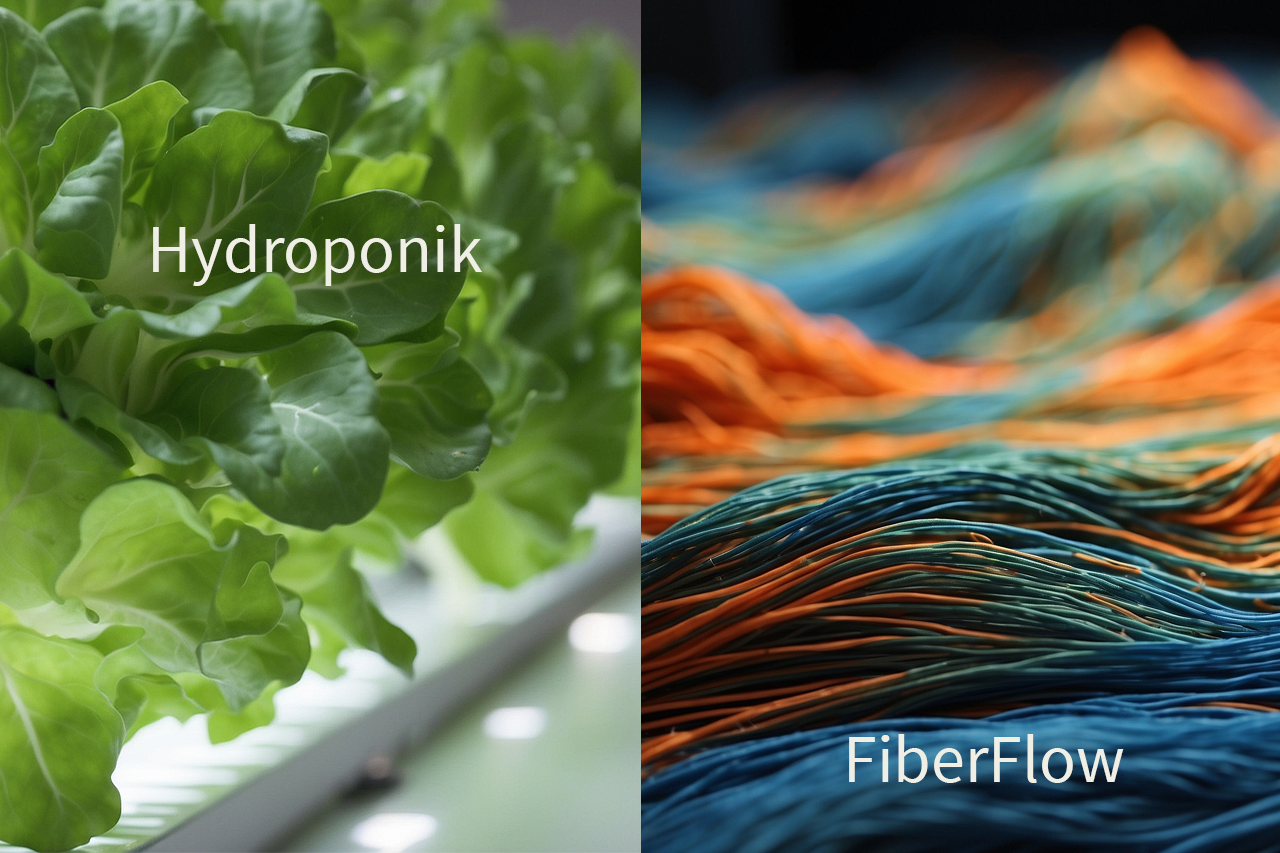Engineering project ideas for greater sustainability and climate protection receive eku Future Prize 2023
In December 2023, two teams from the Faculty of Engineering received the Saxon "eku - FUTURE PRIZE 2023" for their ideas on resource-conserving plant cultivation as an educational project (hydroponics) and an innovative process for textile recycling (FiberFlow) .
With the "eku - Zukunftspreis für Energie, Klima, Umwelt 2023", the Saxon State Ministry for Energy, Climate Protection, Environment and Agriculture (SMEKUL) annually honours projects that make an exemplary contribution to ecologically sustainable development in Saxony and to the protection of the climate, resources, nature and the environment. The initiative also aims to support the diverse commitment in the Free State, make it visible and promote communication with and between the stakeholders.
In the "Science" category this year, Prof Mathias Rudolph 's team (Chair of Industrial Metrology, Faculty ING HTWK Leipzig) was delighted to receive a grant for the hydroponics project.

Project idea: Hydroponics | Urban food supply
An educational project in co-operative project groups
Resource-conserving, above all water-saving plant cultivation has become indispensable due to climate change. This is exactly what hydroponics aims to achieve: a form of plant cultivation that works without soil by supplying plants with a water-nutrient solution via their roots.
The aim of the project is to communicate the importance of sustainable food production as an educational project beyond the university. The project participants, who work in cooperative groups consisting of students, pupils and trainees etc., are familiarised with the construction and operation of hydroponic systems. The focus is on the metrological/automation systems used to support sustainable plant cultivation.
Five complex hydroponic test stands have already been set up at HTWK Leipzig, which differ in terms of the hydroponic system used and the measurement and automation technology employed. At one of the test stands, for example, an automated irrigation system is to be installed for the drip system set up as part of the project. To ensure that the plants are always supplied with sufficient water, regular checks are carried out using a soil moisture sensor. An ebb and flow system, an NFT system, a wick system and the Kratky method were also set up. These systems use EC and pH sensors, among other things, to monitor nutrient availability. The effects of using a plant lamp and an oxygen pump are also being investigated.

The hydroponics project is scheduled to start in spring 2024. From then on, Prof Rudolph's team plans to carry out the experiments with pupils and trainees from various educational institutions. In addition, further learning formats are to be developed in order to present the concept of hydroponics to a wider public in an exciting way, for example as part of the University Information Day at HTWK Leipzig or the Long Night of Science.
The FiberFlow project by young scientists B. Eng. Lena Strobl (Energy, Building and Environmental Engineering, Environmental Engineering profile), B. Sc. Elena Richter (Master's student Industrial Engineering/Production Engineering) and Ludwig Morgenstern (Bachelor's student Energy, Building and Environmental Engineering, Energy Engineering profile) was honoured in the "Company" category, as the team wants to enable high-quality textile recycling with their innovative textile process as a start-up.
Project idea: FiberFlow
Innovative process for high-quality textile recycling

Every European produces an average of 15 kg of textile waste per year, and the trend is rising. The majority of used textiles are exported or reused, e.g. in second-hand shops or online marketplaces, and the rest is recycled (e.g. into cleaning cloths), thermally recycled (incineration) or disposed of as waste. When petroleum-based fibres are incinerated, in addition to toxic combustion products, the climate-damaging gases carbon monoxide and carbon dioxide are produced, which further promote anthropogenic climate change.
To date, only around 1% of the waste produced makes its way back into the textile industry.
Processing methods for producing high-quality new fabrics from textile waste are called fibre-to-fibre processes. All of these processes developed to date have in common that they react sensitively to the material composition of the input materials. To put it simply: processing pure materials is possible, but processing mixtures is difficult. This is exactly where the new FiberFlow process comes into play:
FiberFlow works like a sewage treatment plant for textile waste.
In the process, textile waste that can no longer be reused is first shredded down to fibre form. The subsequent separation is a multi-stage process in which one material after another is separated in each stage. At the end of the process, the product is pure fibres. These are then dried and can be sent for chemical or mechanical recycling.
FiberFlow not only makes it technically feasible to separate material mixtures, but also enables the use of fibre-to-fibre processes.
This means that textile waste can actually be turned back into a T-shirt.
The FiberFlow team is currently being supported by Startbahn 13, the start-up consultancy of HTWK Leipzig, in order to realise a spin-off as a start-up.
We congratulate all the prize winners and wish the FiberFlow team every success with their spin-off.
LINKS
Hydroponics
FiberFlow Pitchdeck - A PDF with important information about the project idea
eku Future Prize - https://www.eku.sachsen.de
